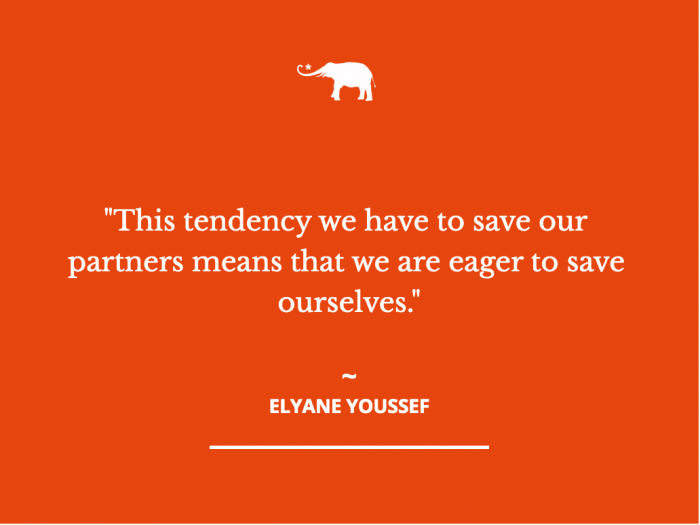View this post on Instagram
The only clear memory I have from my childhood is my need to be loved.
The love and attention I had at my home wasn’t present in my school. I had many overwhelming and negative experiences up until I was eight that left me feeling unloved and traumatized for many years to come.
Be it being bullied or no one showing up at my seventh birthday, these memories have been imprinted in my mind. Not all childhood wounds come from family. In my case, the majority came from my scholar environment. Although I no longer come back to that phase in my life, these upsetting experiences made their way into my adult relationships.
Fast forward 15 and 20 years later, I found myself constantly trying to solve the problems of the men I liked. Whenever I met someone who was emotionally unavailable, a cheater, an addict, or with a huge sign on his forehead that read “broken,” I would dive headfirst into them.
I wanted to fix them.
I always thought that it came from pure and good intentions, and I believed that I was a genuinely good person. Don’t get me wrong. I am. But offering unlimited “fixes” has nothing to do with “kindness.” It has to do with a much bigger issue.
In our minds, when we fix someone, we want to make them better people. We want to turn the emotionally unavailable into a vulnerable and affectionate person. We work hard to make the commitment phobic devoted and stable. We ascertain that we can help the addict and guide them into the path of light. As for the cheater, we make sure to stay so we don’t disappoint them when they go astray or have an affair.
While all of this does seem kind, it is, in fact, unconscious behavior that is simply being triggered.
The year before I met my now husband was a year full of revelations. It was the year when I had enough of my own bullsh*t. It was the year when I had enough of fixing and actually questioned my own motives.
That year, I revisited my childhood. I revisited the bullying, abandonment, and rejection. I delved deep within myself and discovered that by fixing others, I was only trying to fix myself.
I didn’t really “love” these people. I wanted them to love me for being patient, kind, understanding, and loving.
I didn’t really fix them. I wanted their validation and attention to fix me.
I didn’t really want a relationship. I just wanted to be loved.
Loving people who rejected me was my proof that I only wanted to gain what I had never received as a child: attention.
As an adult, I thought I wasn’t worthy of attention. I thought something was wrong with me because I was bullied as a kid. To make that up, I developed a compulsion to save my lovers.
This tendency we have to save our partners means that we are eager to save ourselves.
We have to revisit memories we don’t feel comfortable with and feel emotions that might sting if we are serious about healing. We have to be assured that genuine love doesn’t fix. Genuine love doesn’t change.
We need to give ourselves what we want others to give us. We need to turn all this love and validation toward ourselves.
So ask yourself, “Why am I trying to fix my partner? Which wound am I trying to heal? Do I understand that I’m only trying to save myself? Do I understand that I might be in love with what’s familiar, and not really with a person?”
Set boundaries. Learn to say “no.” Understand that rejection in relationships could only be mirroring an unhealthy upbringing in the past.
Loving difficult people means we had a difficult childhood.
Let that sink in.
~












Read 19 comments and reply